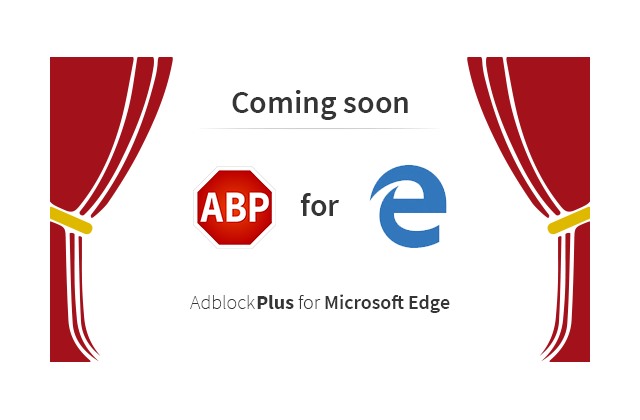
How much does an Apple iPhone SE cost in Europe, Australia and India? (Hint: A lot)
One of the main selling points of the new iPhone SE is its affordable price. Starting at just $399, Apple's latest smartphone costs $250 less than a comparable iPhone 6s or $150 less than a similar iPhone 6. For iPhone fans or would-be customers on a budget, it is a very attractive proposition. That is the story in US anyway.
In other markets, Apple has decided to sell the new iPhone SE at a premium, making it a less attractive proposition in the process. In Europe, for instance, prices are considerably higher even when removing VAT from the equation.

Adding a payment feature to your website can improve cash flow
Whether you have a big or small business, targeting the online audience is one of the best decisions you will ever make. There are billions of people using the internet everyday, with thousands or millions of these people matching your target demographic. Ecommerce has seen the rise of many enterprises, some of which operate exclusively online.
One of the most important parts about running an online business is having a great website design. You website design is what people online perceive about your business and this is why you need to invest in professional website design and development. You may have a cousin or a friend who is good at coding, but there is a lot more that goes into an ecommerce website development.

New platform aims to break down barriers to big data adoption
Big data deployments are increasingly shifting from lab settings to full production environments. But there are a number of security and QoS (quality of service) challenges that can slow this process.
Big data company BlueData is launching the latest release of its EPIC software platform, introducing several security and other upgrades to provide a smoother Big-Data-as-a-Service experience as well as support for new applications and frameworks.

Kyvos brings big data to Microsoft Azure
Many organizations are looking at the benefits they can gain from big data but are put off by the infrastructure costs involved.
Analytics company Kyvos Insights is aiming to make big data more accessible by making its scalable, self-service online analytical processing (OLAP) solution available to users of Microsoft Azure HDInsight.

Webscale offers a fast track to delivering web applications
Running an application or server in the cloud has many advantages, but it doesn't guarantee scalability. It can be hard to predict demand, leading to infrastructure having to play catch up at peak periods.
Application delivery specialist Webscale Networks is aiming to improve things with the launch of its new platform offering mid-market e-commerce and enterprise companies a fast track to the cloud.

ShareByLink is a signup-free file sharing service
ShareByLinkShareByLink is an open-source file sharing service and application for Windows, Linux and Mac.
The package is all about simplicity. There’s no registration, no account to create, nothing to set up: just install the program, then right-click a file and select "Share file(s) online...".

Adblock Plus is coming to Edge... as soon as Microsoft allows it
After something of a delay, Microsoft finally released a version of its newest browser -- Microsoft Edge -- that supports extensions. We've already seen the first extensions appear in the Windows Store, but there are some big names that people are waiting for.
Included on this list is Adblock Plus, and its fans are clamoring for a version they can use in Edge. The good news is that one is in the works -- the only thing standing in the way now is Microsoft.

Downtime costs more than ransomware
You might think that having to pay for files locked by ransomware is costly, but it’s the downtime that actually hurts a business more.
Those are the results of a new survey conducted by cloud IT services company Intermedia. The survey, entitled 2016 Crypto-Ransomware Report, polled nearly 300 expert IT consultants about the current trends in malware.

Create stylish video slideshows with ScatterShow
ScatterShow is a video slideshow creator from Smith Micro Software. Formerly a $29.99 commercial product, it’s now free to anyone willing to provide their email address to the developer.
Is it worth a few minutes of your time? We grabbed a copy to find out.

Manage, move and resize your desktop windows with WinDock
Windows snapping can be a convenient way to reorganize your desktop: just drag and drop a window to the left of the screen, for instance, and it automatically resizes to fill the left half of the display.
Not everyone is a fan. There are only a few snapping features. Some people find they’re easily launched by accident. And apart from turning them off, there’s no real configuration available at all.

FBI may be able to access San Bernadino iPhone without Apple's help
Unless you've been chilling under a rock, news of Apple's fight with the FBI has been everywhere. Even though the iPhone-maker is clearly on the correct side of the encryption-cracking battle, some have sided with the agency. I understand that people want to access the terrorist's phone as a way to thwart future attacks, but when we give up our rights and privacy, the terrorists win.
Today, using the excuse that it might have found a third party solution to cracking the terrorist's phone, the FBI has requested to cancel tomorrow's court appearance. A judge has officially granted the agency's request, postponing the court meeting until April 5.

How manufacturers can improve the security of Internet of Things devices
The security of the Internet of Things is fundamentally broken. Developers and manufacturers understandably are eager to get their new hi-tech products to market and unfortunately often overlook security, instead operating under the misapprehension that security-by-obscurity in their proprietary systems will do. The problem is that security researchers, and those with more malicious intent, can almost always extract binary code from the device memory via JTAG or similar in-circuit debugging facilities, or find it online in the form of updates, and reverse engineer via one of the many tools readily available.
Furthermore, a lack of security subject matter expertise among hardware-oriented engineers creates major vulnerabilities, compounded by the fact that firmware can too easily be modified; and a lack of logical separation between critical and non-critical components within the device opens up further avenues for attackers.

How manufacturers can build trust in self-driving cars
Self-driving cars, until recently, were a phenomenon saved solely for sci-fi films. Yet over the past couple of years, car manufacturing companies have begun focusing their sights on the vehicles of the future.
With studies predicting up to 15 percent of new cars sold in 2030 will be fully autonomous, it’s unsurprising to hear that traditional industry leaders and disruptive innovators such as Google and Apple are currently working on making this trend a reality.

Millennials create IT challenges for UK businesses
A new report released by Quocirca reveals that UK businesses are struggling to manage growing volumes of information and are failing to meet the demands and expectations of the modern workforce.
The report looks at information management in today’s office environment, and how the modern workforce -- which is increasingly consisting of young millennials -- is changing the ways of working. The report also reveals that the traditional approaches to information management are struggling to keep up.

Apple releases iOS 9.3, OS X 10.11.4 El Capitan, tvOS 9.2 and watchOS 2.2 -- here's what's new
Apple just released iOS 9.3, OS X 10.11.4 El Capitan, tvOS 9.2 and watchOS 2.2, following its Let us loop you in event, which, among other things, saw the unveiling of iPhone SE, the 9.7-inch iPad Pro and new Apple Watch bands earlier today.
The latest batch of updates packs lots of changes, including security improvements and new user-friendly features but also bug fixes and better hardware support. Here is everything that you need to know.


